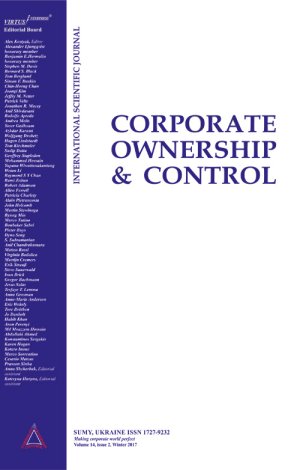
-
 Journal menu
Journal menu

- General information
- Editorial Board and External Reviewers
- Journal Policies
- Publication Ethics and Malpractice Statement
- Instructions for authors
- Paper reviewing
- Article processing charge
- Feedback from stakeholders
- Journal’s Open Access statement
- Order hard copies of the journal
- 50 most cited papers in the journal
FCF AGENCY COSTS, EARNINGS MANAGEMENT, AND INVESTOR MONITORING
Download This ArticleAbstract
Free cash flow has been identified as having the potential to be a major agency cost where managers make expenditures that have negative NPVs. This agency problem reduces profitability and lowers stock market valuations. We argue that firms with high free cash flow and poor growth opportunities will suffer from the free cash flow agency problem. Our results are consistent with expectations and show that firms with high free cash flow and low growth are associated with low long term profitability. We also find that managers use income-decreasing accruals when a firm has high free cash flow agency costs. This earnings management is motivated by managers’ desire to shift profits to future years when the full impact of the sub-optimum investments hits earnings. The evidence supports Fudenberg and Tirole’s (1995) managerial self-interest hypothesis. Consistent with the institutional investor monitoring hypothesis, we show that institutional shareholders act to deter managers from using negative discretionary accruals when free cash flow agency costs are potentially high.
Keywords: Free Cash Flow, Profitability, Earnings Management, Institutional Shareholders
How to cite this paper: Chung, R., Firth, M., & Kim, J. B. (2005). FCF agency costs, earnings management, and investor monitoring. Corporate Ownership & Control, 2(4), 51-61. https://doi.org/10.22495/cocv2i4p4

















